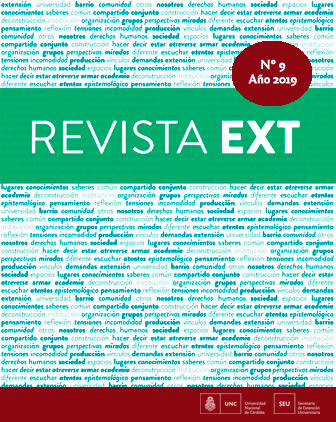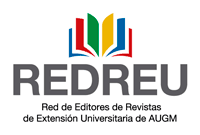Extension practice: a significant educational experience in higher education
Keywords:
Outreach, Situated learning, ParticipationAbstract
Even today, the type of knowledge that prevails in most of our educational institutions is fragmentary, encyclopedic and based on memory. It is disconnected from the reality in which our youth live and hinders the understanding of the technological and social processes that take place in society. In addition, the skills required to access the labor market are similar to those necessary to understand and participate in social and political life, which is, many a time, far from the abilities students develop in classrooms. University outreach is a way of articulating academia and society, giving students the tools to connect both of them in a significant way. The experience students have when involved in university outreach activities can be significant in many ways. It is participating in them that students can strengthen academic knowledge, and also assimilate new practices and structures that go far beyond the professional field.
Downloads
References
Lave, J y Wenger, E (1991) Situated Learning. Legitimate peripheral participation. Cambridge University press, New York.
Federico Navarro (comp). (2014). Manual de escritura para carreras de Humanidades. Buenos aires: Editorial de la Facultad de Filosofía y Letras Universidad de Buenos Aires.
Programa Puntos de extensión. (2018). Objetivos y fundamentos. 1/11/18, de SEU-UNC Sitio web: https://www.unc.edu.ar/extensi%C3%B3n/objetivos-y-fundamentos-6
UNESCO (2008) Reinventing Higher Education: Toward Participatory and
Sustainable Development. Bangkok.
Ziperovich, C. (2010) Cap. 3: “El aprendizaje como proceso complejo”. Aprendizajes. Aportes para pensar pedagógicamente su complejidad. (59-92). Brujas, Córdoba.
Downloads
Published
Issue
Section
License
Aquellos autores/as que tengan publicaciones con esta revista, aceptan los términos siguientes:
- Los autores/as conservarán sus derechos de autor y garantizarán a la revista el derecho de primera publicación de su obra, el cuál estará simultáneamente sujeto a la Licencia de reconocimiento de Creative Commons que permite a terceros compartir la obra siempre que se indique su autor y su primera publicación esta revista.
- Los autores/as podrán adoptar otros acuerdos de licencia no exclusiva de distribución de la versión de la obra publicada (p. ej.: depositarla en un archivo telemático institucional o publicarla en un volumen monográfico) siempre que se indique la publicación inicial en esta revista.
- Se permite y recomienda a los autores/as difundir su obra a través de Internet (p. ej.: en archivos telemáticos institucionales o en su página web) después del proceso de publicación, lo cual puede producir intercambios interesantes y aumentar las citas de la obra publicada. (Véase El efecto del acceso abierto).





